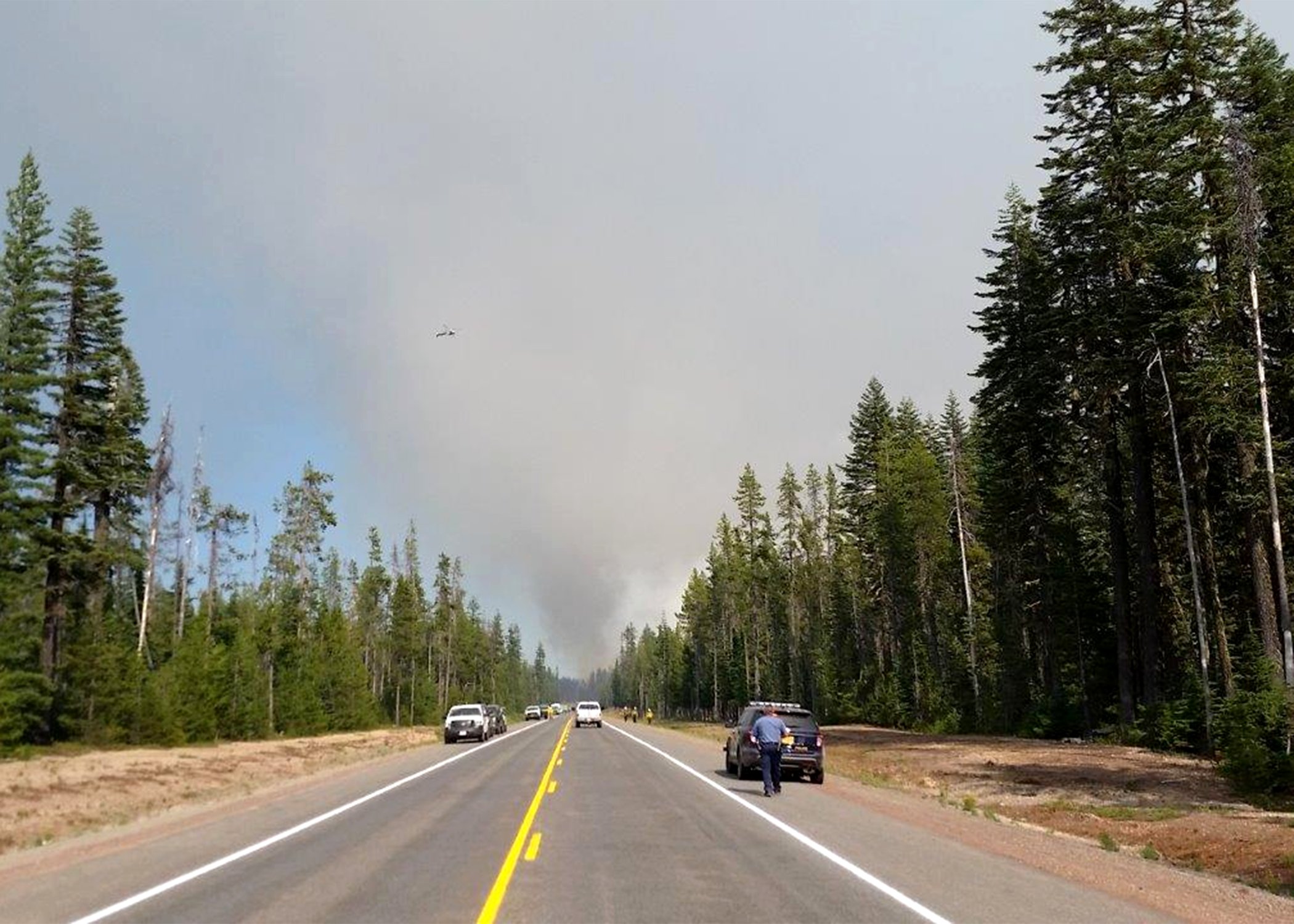The wildfire scorching a rural county in Washington was unpredictable and fast, an inferno that was hard to dodge. Three firefighters who set out to begin the battle against it on Wednesday fell victim to bad luck and died in the flames.
“It was a hell storm up here,” Okanogan County Sheriff Frank Rogers said, standing not far from the flames. “The fire was racing and the winds were blowing in every direction, and then they would shift,” he told CNN affiliate KXLY.
The firefighters were on an “initial attack” operation when they had a vehicle accident. Rogers said the flames then overtook them.
“We are devastated by the tragic loss of three of our Forest Service firefighters,” said spokesman Mike Williams of the U.S. Forest Service. “Our hearts and prayers go out to the families and fellow crewmembers of these brave firefighters.”
The names of the killed firefighters have not been released, pending the notification of next of kin, Rogers said.
Four more injured
Four more firefighters have been injured in the blaze near the village of Twisp, but only one was taken to the hospital — a 25-year-old man who suffered severe burns.
Late Wednesday, fire crews from multiple agencies continued to battle the wildfire, which had incinerated a few hundred acres of land. “It’s not going out tonight,” Rogers said. “And the winds are still blowing.”
Rising billows of smoke eclipsed the setting sun.
The flames had not reached Twisp, but they were headed in that direction, Rogers said. About 1,000 people there and in the town of Winthrop, about 10 miles away, have been evacuated.
Disaster declaration
At least 11 wildfires were burning as of Wednesday. They had razed 235,000 acres of eastern Washington state land, officials said. Three of them, including two of the largest, were burning in Okanogan County. Wildfires have destroyed at least 50 homes and 60 other structures in the state this year.
Washington declared a disaster on a state level in June in anticipation of a harsh wildfire season stoked by drought, and it mobilized more than 300 National Guard personnel to assist firefighters.
Being careful about deploying 200 soldiers
In much of the western United States, firefighters are shouldering a similar burden, as about 80 wildfires — ranging from as small as a few dozen acres to larger than 100,000 acres — are burning, from Alaska to Oregon, Idaho to Montana, according to the national fire tracking website InciWeb.
About 200 active duty military personnel will help fight the wildfires in seven Western states, the first time since 2006 that soldiers from Joint Base Lewis-McChord, Washington, have been deployed for such duty.
The extreme fire danger, however, is delaying their deployment to the fires.
“The fire agencies are concerned that these fires could blow into extreme fire behavior. And that creates a situation where we have to think twice about where we put the military crews,” said spokesman Ken Frederick of the National Interagency Fire Center.
“Even though they will be led by experienced crew leaders, we have to be careful about putting them in a dynamic, complicated fire situation,” he added.
One concern is communication between the military and other fire crews. The soldiers may be unfamiliar with communication practices among veteran firefighters, Frederick said.
“When a fire starts going and it starts crowning, racing uphill, it gets loud, many people describe it as like a freight train,” Frederick said. “It’s a signal that everyone on the line has to pay attention.
“These (soldiers) are brand new crews with just three days training. We cannot treat them like experienced crews. They are wonderful people, doing a good job, but they are working in an environment they are not used to and we have to be safe.”
10,000 firefighters battling in one state
Down the coast from Washington, in California, where record extreme drought has hung on for four years, the fires are also bad.
On Wednesday, more than 10,000 firefighters battled 16 wildfires in California, authorities said.
It only takes a single spark to lead whole swaths to burn — a cigarette, a smoldering extinguished campfire, a ricocheting bullet.
A faulty gas water heater caused a wildfire that joined another blaze and, together, they became one of the season’s biggest blazes in northern California.
The Rocky Fire burned almost 70,000 acres, or 109 square miles in 16 days this month.
It forced more than 13,000 residents to evacuate and ultimately destroyed 43 homes and 53 outbuildings, authorities said.
Another monster fire, the River Complex Fire, was 20% contained on Wednesday after burning 45,477 acres in northwestern California.
Authorities said lightning caused that fire.



